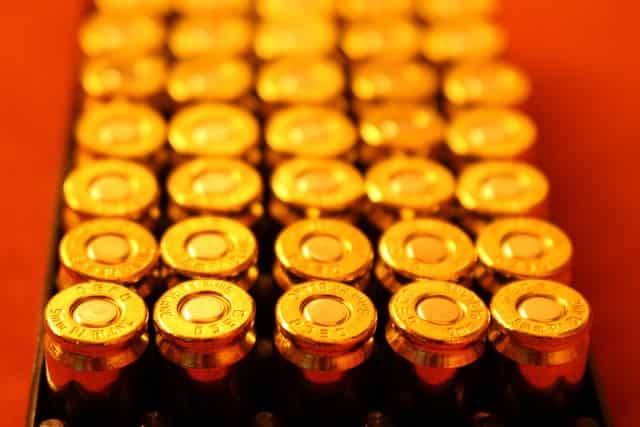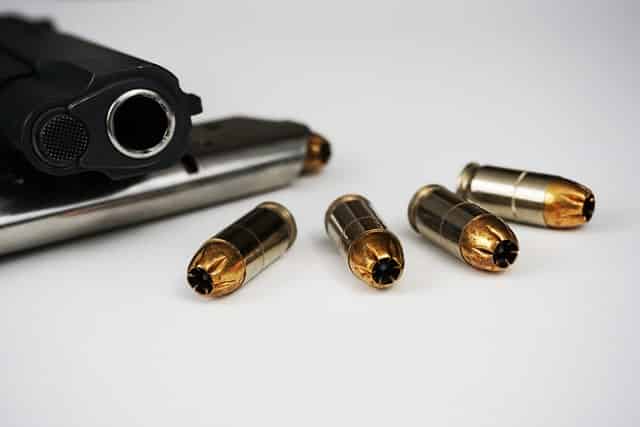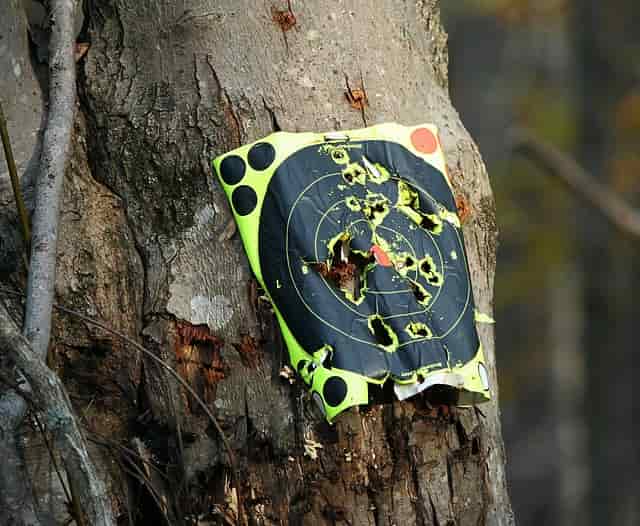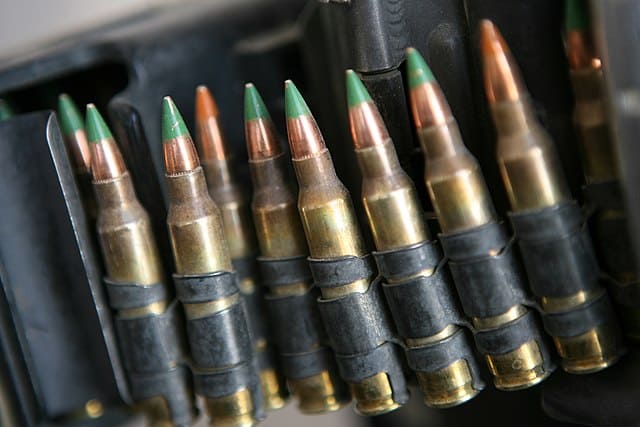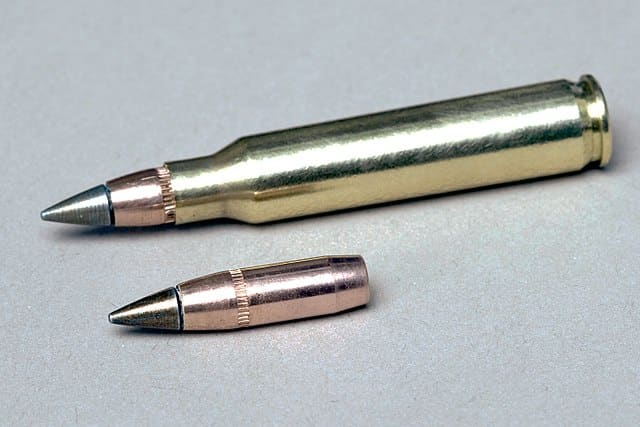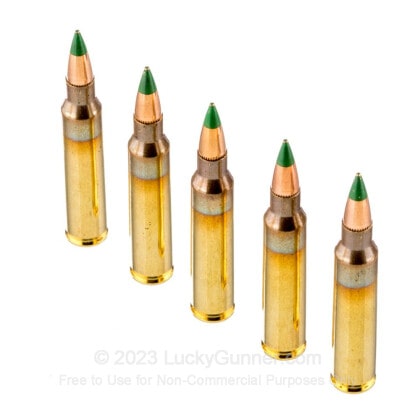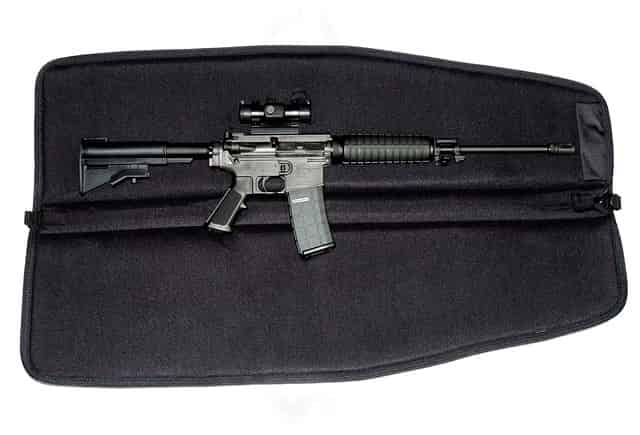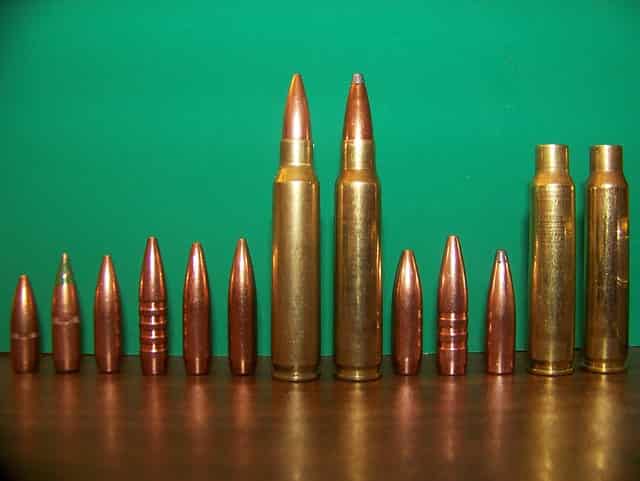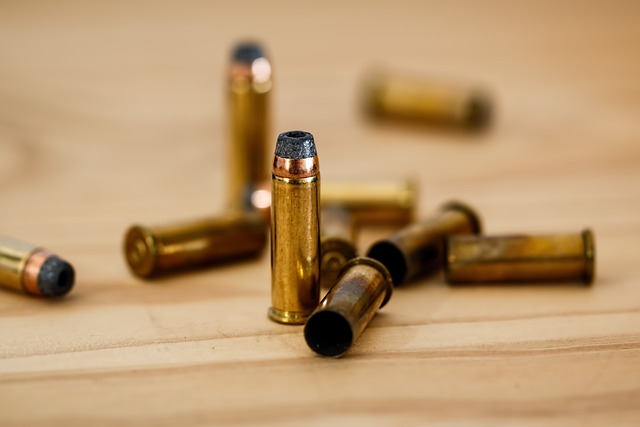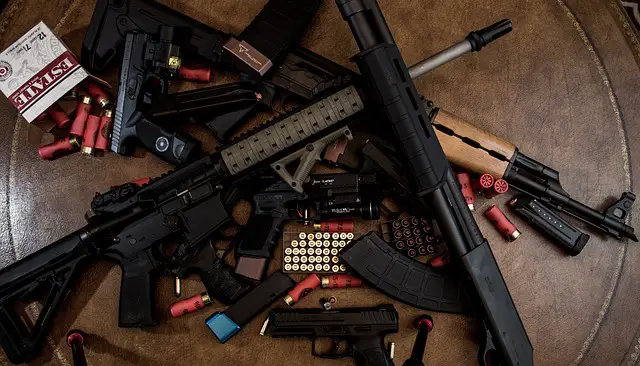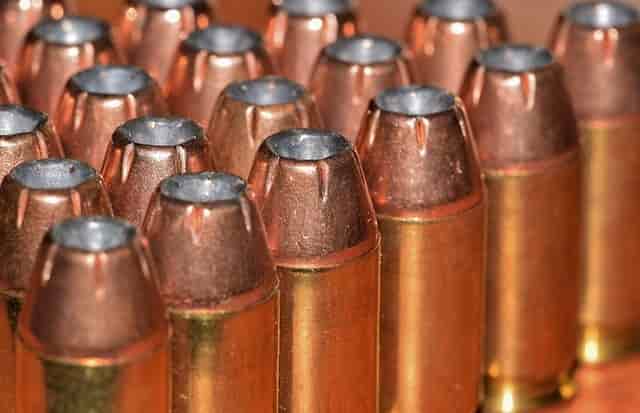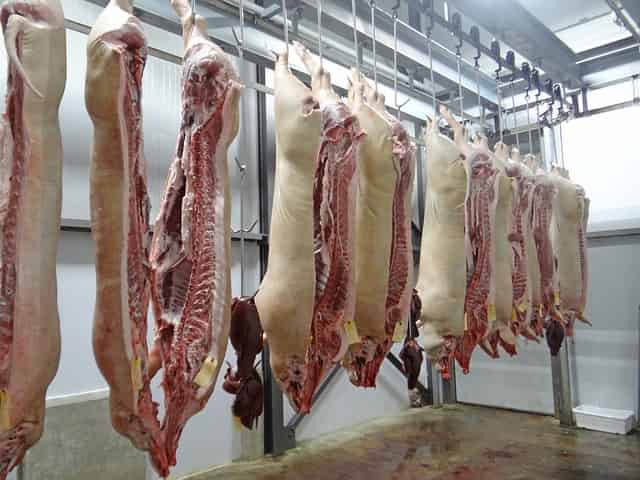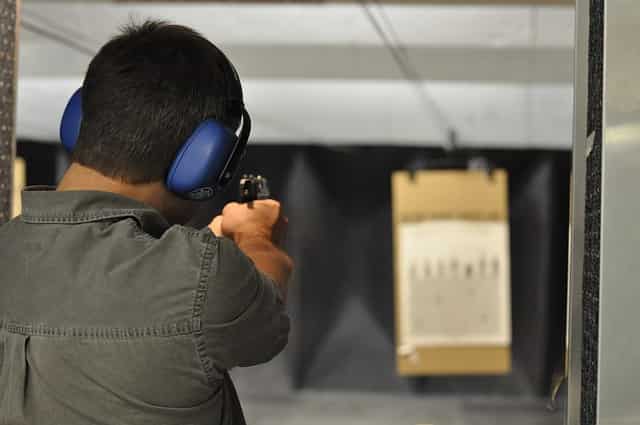
Shooting is a skill that requires a combination of focus, accuracy, and comfort. One of the most debated topics among shooters is whether to close one eye or keep both eyes open when aiming. Some believe that closing one eye helps to improve accuracy, while others argue that it limits the shooter’s field of vision and situational awareness.
The short answer is that eventually you need to learn to shoot with both eyes open. This technique may not be appropriate for all beginners, but keep reading for a more thorough explanation
What is Eye Dominance?
Eye dominance is the tendency for one eye to be more dominant than the other. This means that when both eyes are open, the brain will rely more on the visual information from the dominant eye. Eye dominance is determined by the brain, not the eyes themselves, and it is estimated that about two-thirds of the population have a dominant right eye, while the remaining third have a dominant left eye.
When it comes to shooting, eye dominance is particularly important. If a shooter is right-handed but has a dominant left eye, they may find it difficult to aim accurately with their right eye. This is because their brain is relying more on the visual information from their left eye, which is not aligned with the sights of the gun.
There are several ways to determine which eye is dominant, including the Miles test, the Porta test, and the hole-in-the-card test. These tests involve aligning an object or a hole with both eyes and seeing which eye the object or hole lines up with more accurately.
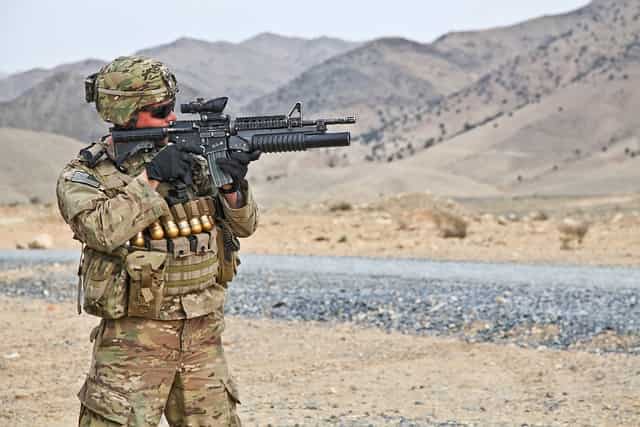
Should You Close One Eye When Shooting?
Advantages of Closing One Eye
Closing one eye while shooting has been a common technique for many years. Here are some advantages of closing one eye:
- Increased focus: Closing one eye can help you focus on your target more effectively. By eliminating visual distractions, you can concentrate on the task at hand and aim more accurately.
- Better sight alignment: Closing one eye can help you achieve better sight alignment. When you close one eye, you can align your dominant eye with the sights more easily, which can improve your accuracy.

Disadvantages of Closing One Eye
While closing one eye has its advantages, it also has some disadvantages. Here are some of them:
- Reduced depth perception: Closing one eye can reduce your depth perception, making it harder to judge distances accurately. This can be a problem if you are shooting at moving targets or in situations where you need to quickly assess your surroundings.
- Limited field of view: Closing one eye can also limit your field of view. When you keep both eyes open, you have a wider field of view, which can help you spot potential threats or obstacles.
- Slower target acquisition: Closing one eye can slow down your target acquisition. By keeping both eyes open, you can quickly acquire your target and react more quickly to changing situations.
Keeping Both Eyes Open When Shooting
Advantages of Keeping Both Eyes Open
When it comes to shooting, many people believe that closing one eye is the only way to achieve accuracy. However, keeping both eyes open has several advantages.
First, keeping both eyes open allows for better depth perception. This is because the brain is able to process more information from both eyes, resulting in a more accurate perception of distance and spatial relationships.
Second, keeping both eyes open allows for better situational awareness. With both eyes open, the shooter is able to see their surroundings and potential threats, which is especially important in self-defense situations.
Third, keeping both eyes open reduces eye strain and fatigue. When one eye is closed, the other eye has to work harder to compensate for the loss of depth perception. This can lead to eye strain and fatigue, which can affect accuracy over time.
Disadvantages of Keeping Both Eyes Open
While there are several advantages to keeping both eyes open when shooting, there are also some disadvantages to consider.
One disadvantage is that keeping both eyes open can be distracting for some shooters. This is especially true for beginners who may find it difficult to focus on the target with both eyes open.
Another disadvantage is that keeping both eyes open can result in a wider field of view, which can be overwhelming for some shooters. This can make it more difficult to focus on the target and can lead to inaccurate shots.

How to Shoot with Both Eyes Open
Shooting with both eyes open is a technique that can improve your accuracy and situational awareness. Here are some tips on how to shoot with both eyes open:
- Focus on the target: When shooting with both eyes open, it’s important to focus on the target and not on the sights. This can take some practice, but it will help you maintain your depth perception and peripheral vision.
- Use a dominant eye: If you have a dominant eye, use that eye to aim down the sights. This will help you maintain your accuracy while still keeping both eyes open.
- Practice: Shooting with both eyes open can take some getting used to, so it’s important to practice regularly. Start by shooting at close targets and gradually work your way up to longer distances.
- Use a red dot sight: Red dot sights can be particularly helpful when shooting with both eyes open. They allow you to keep both eyes open while still maintaining your accuracy.
- Keep both eyes open: It’s important to keep both eyes open when shooting with this technique. Closing one eye can reduce your depth perception and peripheral vision.
By following these tips, you can improve your accuracy and situational awareness when shooting with both eyes open.
How to Determine Your Dominant Eye
- Start by extending your arms and holding your hands together to form a small triangle between your thumbs and forefingers.
- With both eyes open, focus on a distant object through the triangle.
- Close one eye and then the other. The eye that keeps the object in view is your dominant eye.
Another way to determine your dominant eye is by using the Miles test. Here’s how to do it:
- Extend your arm and make a small circle with your thumb and forefinger.
- Keeping both eyes open, focus on an object in the distance and center it within the circle.
- Close one eye and then the other. The eye that keeps the object centered is your dominant eye.
It’s important to note that your dominant eye may not necessarily be the same as your dominant hand. It’s not uncommon for someone who is right-handed to have a dominant left eye.
Knowing your dominant eye is essential when it comes to shooting accurately. Once you’ve determined which eye is dominant, you can adjust your shooting stance and technique accordingly.

How to Aim with Both Eyes Open
When aiming with both eyes open, the shooter uses both eyes to focus on the target, allowing for greater depth perception and a wider field of view. Here are a few tips on how to aim with both eyes open:
- Focus on the target: The shooter should focus on the target with both eyes open, keeping the target in clear view. This helps the shooter to maintain situational awareness and be aware of any potential threats or obstacles in the surrounding environment.
- Sight picture: The shooter should align the sights with the target and focus on the front sight. The front sight should be in sharp focus, while the rear sight and the target are slightly out of focus. This helps the shooter to achieve a clear sight picture and accurately aim at the target.
- Front sight: The front sight is the most important part of the sight picture. The shooter should focus on the front sight and keep it aligned with the target. This helps the shooter to maintain accuracy and hit the target consistently.
- Practice: Aiming with both eyes open takes practice. The shooter should start by practicing on a stationary target and gradually move on to targets that move or require quick reaction times. Consistent practice will help the shooter to develop muscle memory and improve their accuracy.
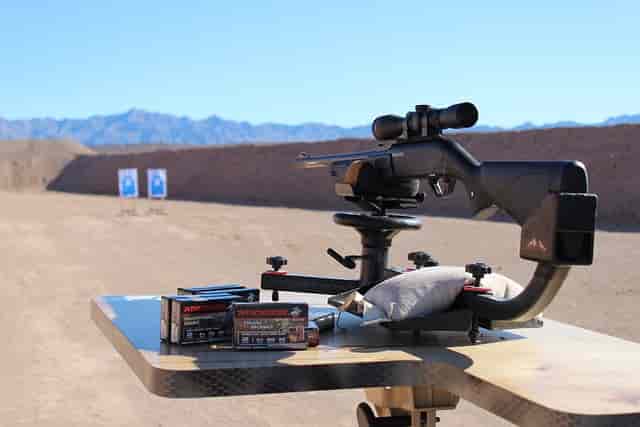
Situational Awareness and Peripheral Vision
When it comes to shooting, situational awareness and peripheral vision are critical factors that can affect the accuracy and safety of the shooter. Situational awareness refers to the ability to perceive and understand one’s surroundings and environment, while peripheral vision is the visual field outside the central vision.
Having good situational awareness and peripheral vision can help the shooter to identify potential threats, obstacles, and other hazards in their surroundings. This can be especially important in situations where the shooter needs to react quickly and make split-second decisions.
Peripheral vision can also help the shooter to maintain a wider field of view, which can be useful in tracking moving targets or monitoring multiple targets simultaneously. However, it is important to note that closing one eye when shooting can significantly reduce the shooter’s peripheral vision, which can make it more difficult to maintain situational awareness and track targets effectively.
In some situations, such as when shooting at long distances or in low-light conditions, closing one eye may be necessary to improve accuracy. However, it is important to weigh the benefits of improved accuracy against the potential risks of reduced situational awareness and peripheral vision.






